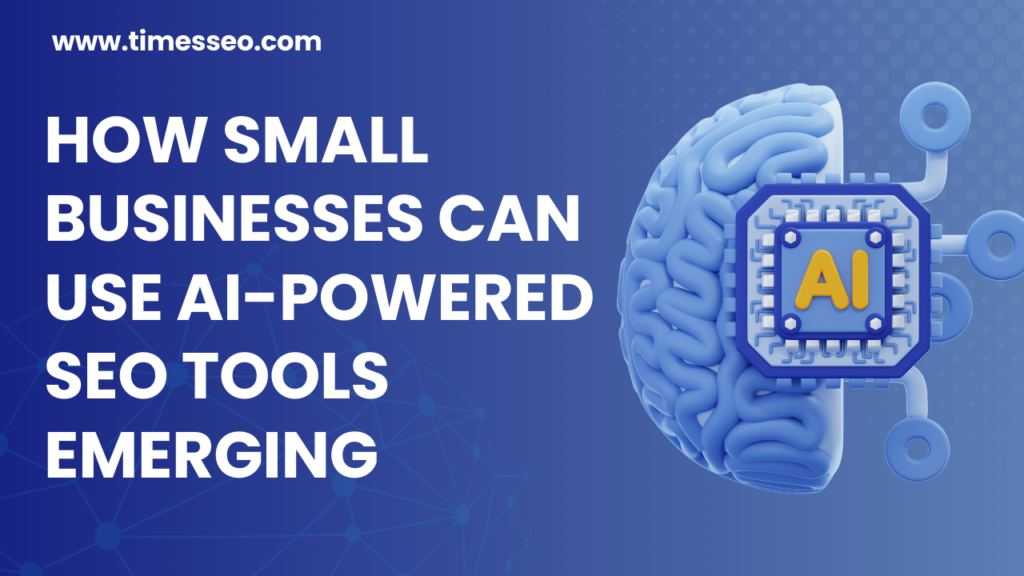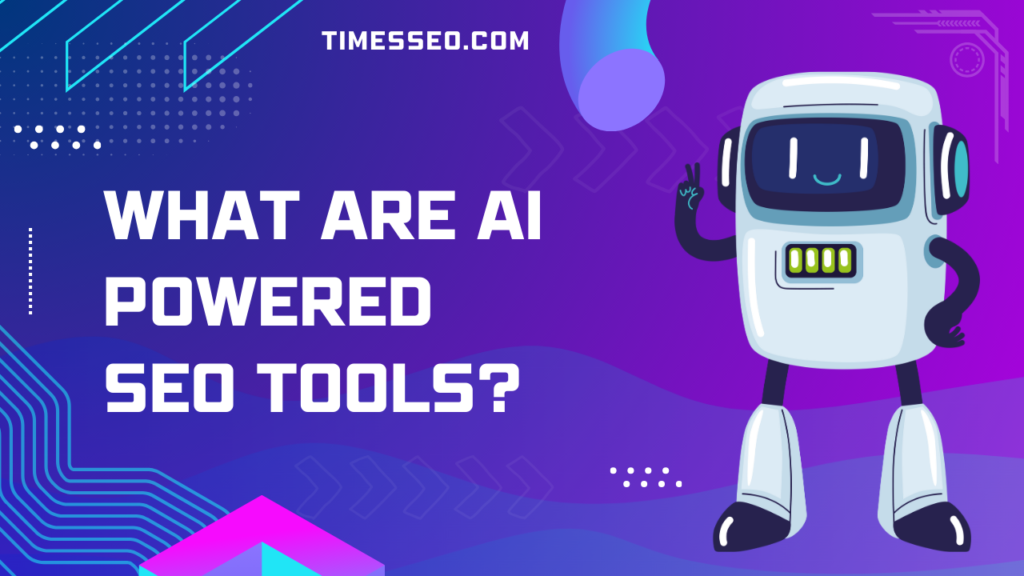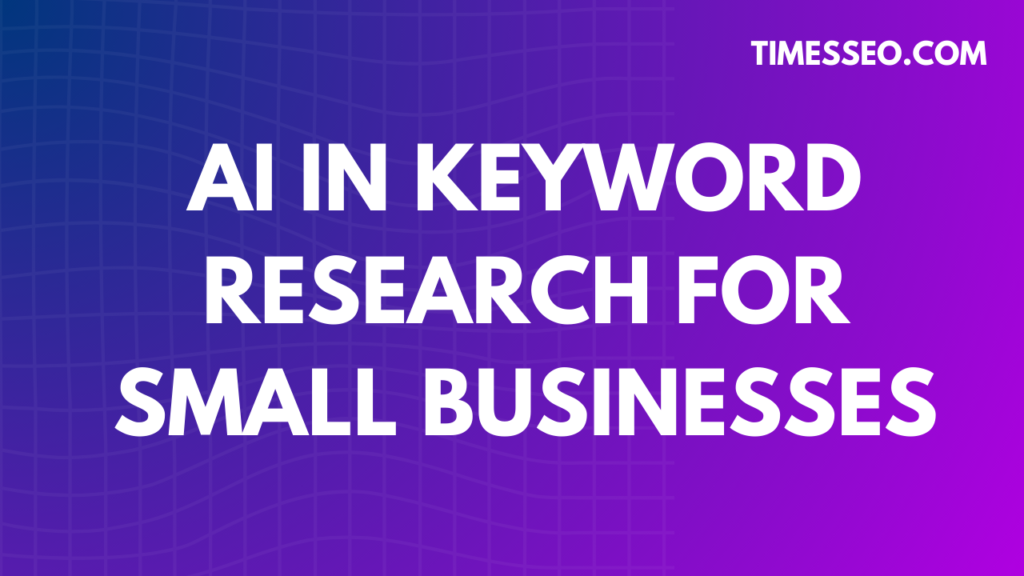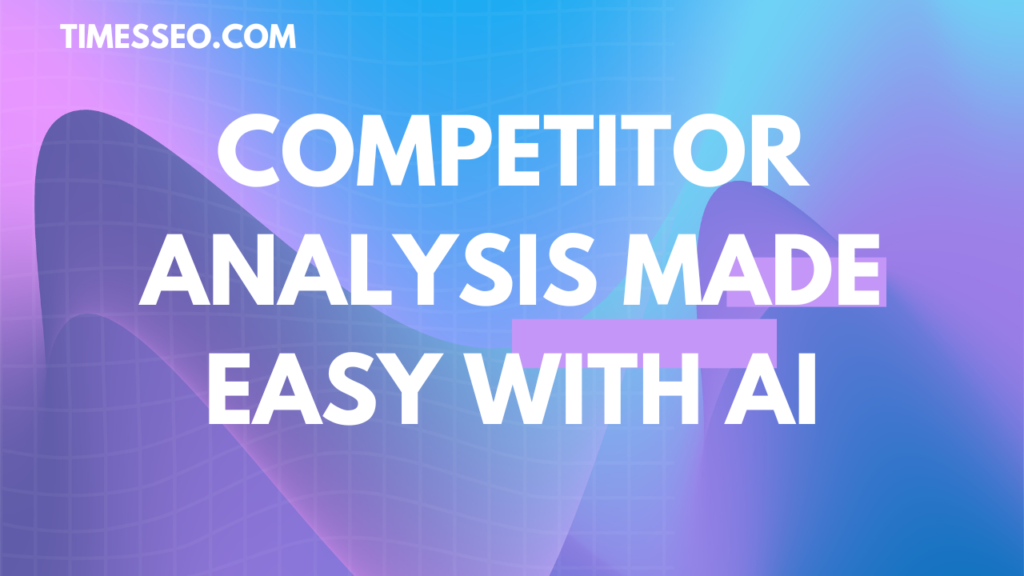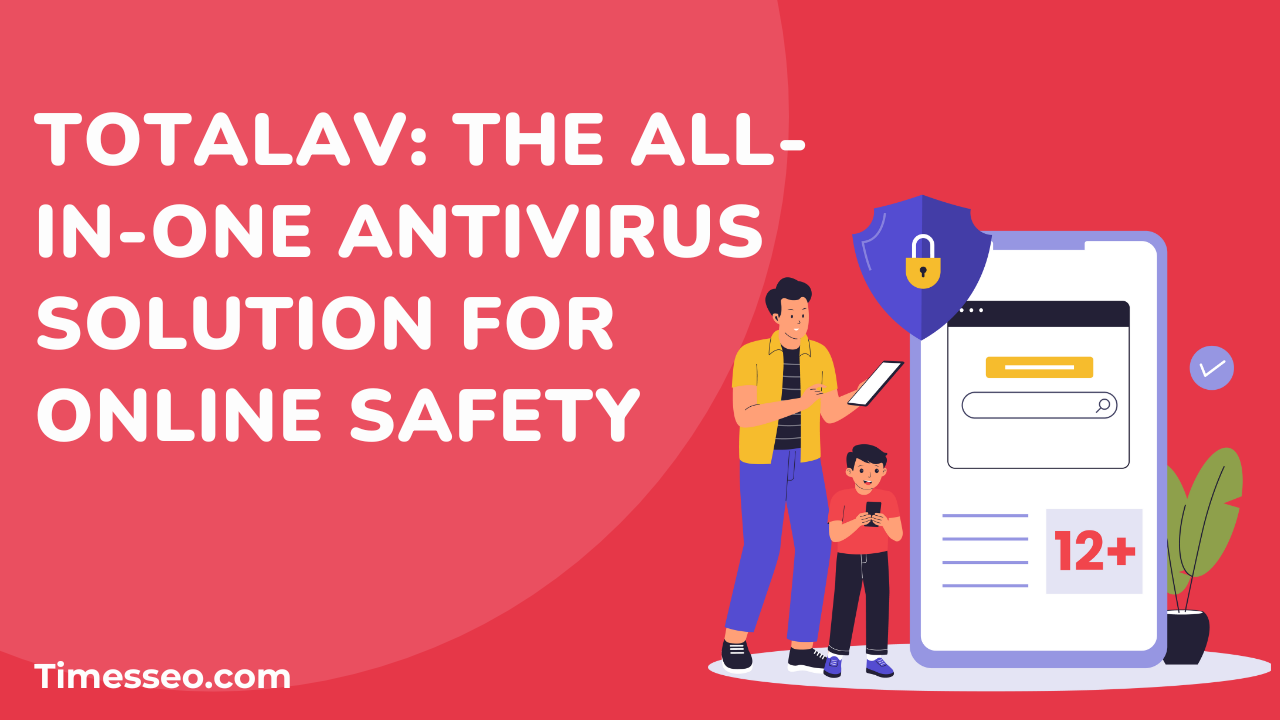
How Small Businesses Can Use AI Powered SEO Tools Emerging
Discover practical ways small businesses can grow online with AI powered SEO tools emerging. This blog post explores how AI helps with keyword research, content optimization, local SEO, and competitor analysis—making it easier for small brands to compete with larger companies.
Table of Contents
Introduction
Making an impression on the internet may be like shouting in a crowded market for small enterprises. Competing with big brands that have deep pockets for marketing is tough. But here’s the good news: AI-powered SEO tools are emerging to level the playing field. They make it possible for small businesses to optimize content, rank higher, and connect with customers without draining resources.
What Are AI Powered SEO Tools?
Artificial intelligence is used by AI powered SEO solutions to enhance and automate SEO tasks. Unlike traditional tools that only show raw data, AI tools analyze, interpret, and provide actionable suggestions. They’re designed to understand context, predict trends, and guide content writers in creating search-friendly content.
Why Small Businesses Need AI in SEO
Although SEO has always required a lot of resources, AI is revolutionizing the field. Small businesses benefit because:
- It’s economical since AI eliminates the need for sizable SEO staff.
- It levels the field: Even small players can compete with larger corporations using smart insights.
In other words, AI helps you punch above your weight.
AI in Keyword Research for Small Businesses
Finding the right keywords is crucial, but it’s often overwhelming. AI tools simplify this by:
- Suggesting niche-specific long-tail keywords with less competition.
- Analyzing local search intent to attract nearby customers searching for your services.
This ensures your business shows up in searches that matter most.
Content Creation and Optimization With AI
AI doesn’t write for you—it enhances your writing. For small businesses:
- It recommends ways to make your material easier to read so that more people will find it interesting.
- It checks keyword placement and density so your writing feels natural yet SEO-friendly.
Think of AI as your digital editor working around the clock.
AI Tools for Local SEO
For small businesses, local visibility is everything. AI-powered SEO tools help:
- Add precise information and keywords to your Google Business Profile to make it more effective.
- Suggest content updates tailored to local search trends.
If someone nearby searches “best bakery near me,” AI ensures your bakery has a chance to shine.
AI in Voice Search Optimization
“Hey Google, where’s the nearest café?” Sound familiar? Voice search is booming, and AI helps you prepare. Small businesses can optimize for conversational queries and FAQs so voice assistants like Siri and Alexa recognize your content.
Competitor Analysis Made Easy With AI
Why guess what’s working for your competitors when AI can show you? These tools:
- Highlight gaps in competitor content.
- Reveal strategies that bring them success.
Armed with this data, small businesses can create smarter campaigns that stand out.
Content Personalization With AI
Customers want personalized experiences, not generic marketing. AI uses predictive analytics to:
- Segment your audience.
- Deliver content that resonates with their unique needs.
This creates stronger connections and loyal customers.
AI-Powered SEO and Link Building
Link building is often a headache, but AI simplifies it by:
- Spotting relevant link opportunities in your industry.
- Assisting with personalized outreach emails to potential partners.
This makes it easier for small enterprises to gain authority and trust more quickly.
AI in Social Media and Content Distribution
Posting at random times won’t cut it anymore. AI tools can:
- Schedule posts at optimal times.
- Analyze which platforms bring the best ROI.
This implies that the correct individuals see your posts at the right moment.
Tracking SEO Success With AI Analytics
AI doesn’t just suggest strategies—it tracks results. Small businesses can:
- See how their rankings improve over time.
- Understand customer behavior like clicks, bounce rates, and engagement.
This makes it easy to refine your strategy without guesswork.
Top AI-Powered SEO Tools for Small Businesses
Not all tools are equal, but here are some worth considering:
- SurferSEO: For content optimization and SERP analysis.
- Jasper AI: For AI-assisted content creation.
- SEMrush with AI features: For competitor analysis and keyword insights.
- Clearscope: For improving readability and keyword use.
Even budget-friendly startups can find AI tools that fit their needs.
Limitations and Challenges
AI is powerful, but it’s not perfect. Small businesses should be aware of:
- Over-reliance on AI: It can’t replace human creativity.
- Data biases: Recommendations are only as good as the data fed into the system.
The sweet spot lies in blending AI efficiency with human originality.
Future of AI in Small Business SEO
The future looks bright. AI will continue evolving to help small businesses anticipate trends, personalize content further, and automate tasks. But no matter how advanced AI gets, human creativity and storytelling will remain irreplaceable.
Conclusion
AI-powered SEO tools emerging today are revolutionizing how small businesses approach digital marketing. They save time, cut costs, and give local brands the chance to compete with giants. By combining AI’s data-driven power with authentic human creativity, small businesses can thrive in the ever-changing digital world.
Frequently Asked Questions
No, AI can guide and optimize, but human creativity and emotional connection are still essential.
Tools like SurferSEO, Jasper, and SEMrush are popular and effective for startups and small businesses.
AI analyzes local trends, suggests keywords, and optimizes Google Business Profiles to boost local rankings.
Yes, it saves time and reduces the need for large marketing teams, making SEO affordable.
The biggest advantage is smarter decision-making—backed by data—so small businesses can compete effectively.
Table of Contents
Popular Posts
-
 Affordable Technical SEO Audit for Small Business: A Complete Guide26 Jun 2025 Blog
Affordable Technical SEO Audit for Small Business: A Complete Guide26 Jun 2025 Blog -
 How to Get an Affordable Technical SEO Audit for Small Business27 Jun 2025 Blog
How to Get an Affordable Technical SEO Audit for Small Business27 Jun 2025 Blog -
 The Ultimate Local SEO Audit Checklist for Startups28 Jun 2025 Blog
The Ultimate Local SEO Audit Checklist for Startups28 Jun 2025 Blog -
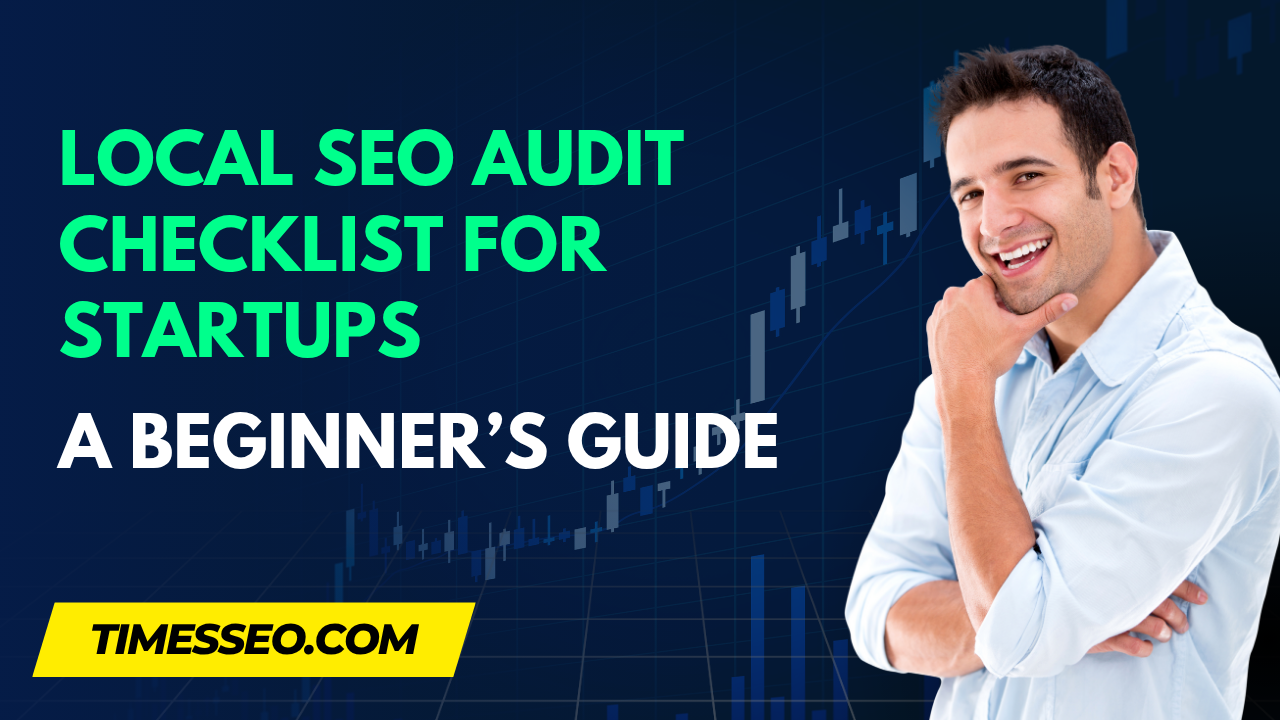 Local SEO Audit Checklist for Startups: A Beginner’s Guide28 Jun 2025 Blog
Local SEO Audit Checklist for Startups: A Beginner’s Guide28 Jun 2025 Blog -
 Top On-Page SEO Audit Steps for Service Websites Every Business Should Know29 Jun 2025 Blog
Top On-Page SEO Audit Steps for Service Websites Every Business Should Know29 Jun 2025 Blog -
 Technical SEO for WordPress: The Ultimate Beginner’s Guide01 Jul 2025 Blog
Technical SEO for WordPress: The Ultimate Beginner’s Guide01 Jul 2025 Blog -
 The Impact of On-Page SEO Audit Steps for Service Websites on UX01 Jul 2025 Blog
The Impact of On-Page SEO Audit Steps for Service Websites on UX01 Jul 2025 Blog -
 Technical Mobile SEO Audit Tips for Developers02 Jul 2025 Blog
Technical Mobile SEO Audit Tips for Developers02 Jul 2025 Blog -
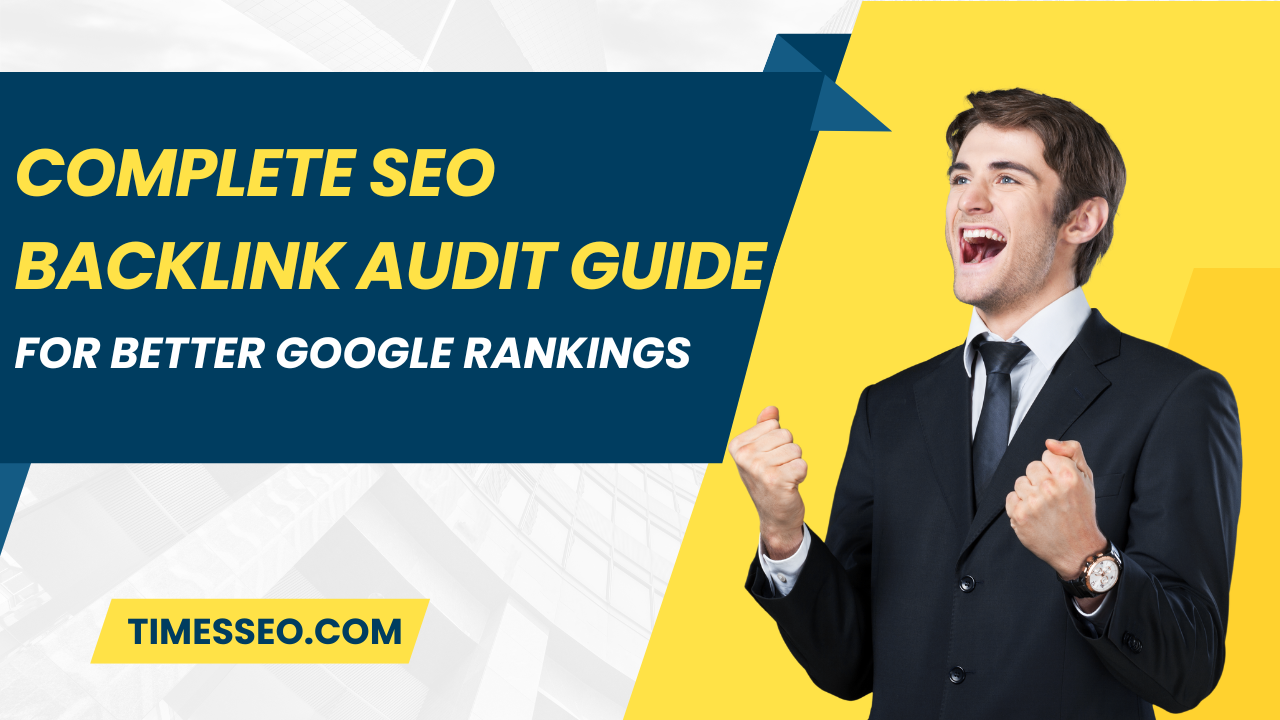 Complete SEO Backlink Audit Guide for Better Google Rankings03 Jul 2025 Blog
Complete SEO Backlink Audit Guide for Better Google Rankings03 Jul 2025 Blog -
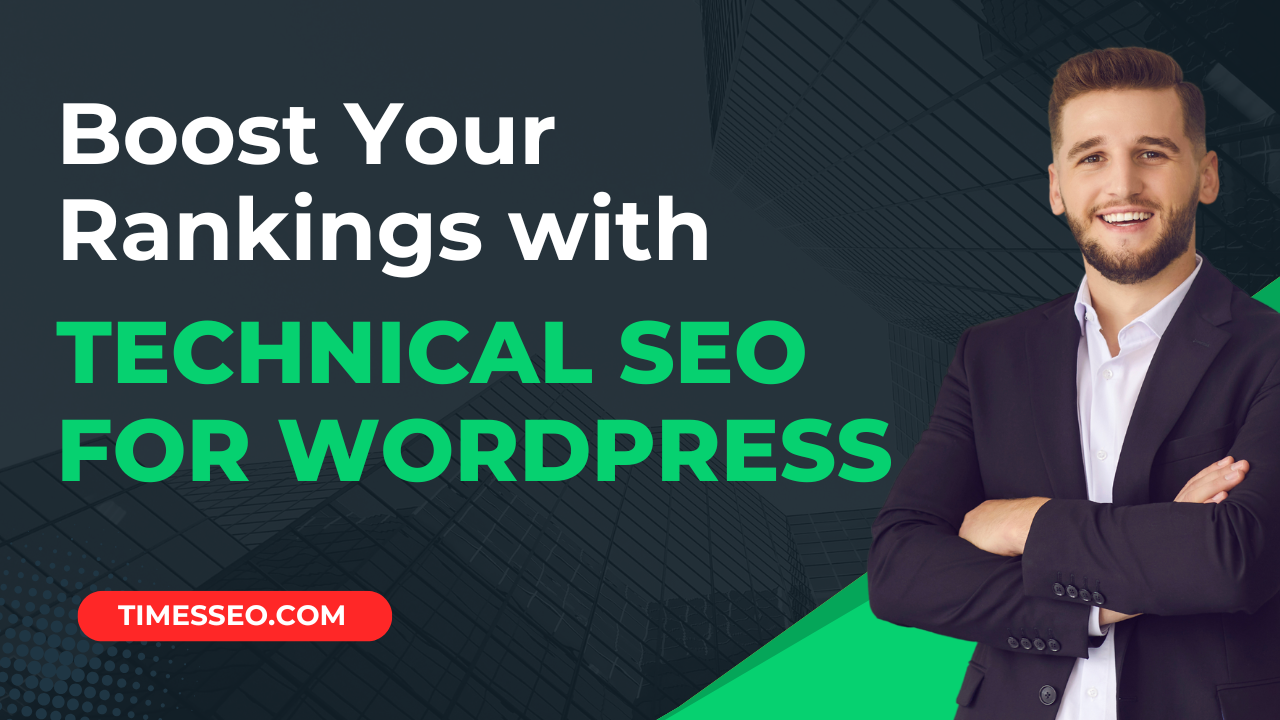 Boost Your Rankings with Technical SEO for WordPress01 Jul 2025 Blog
Boost Your Rankings with Technical SEO for WordPress01 Jul 2025 Blog

